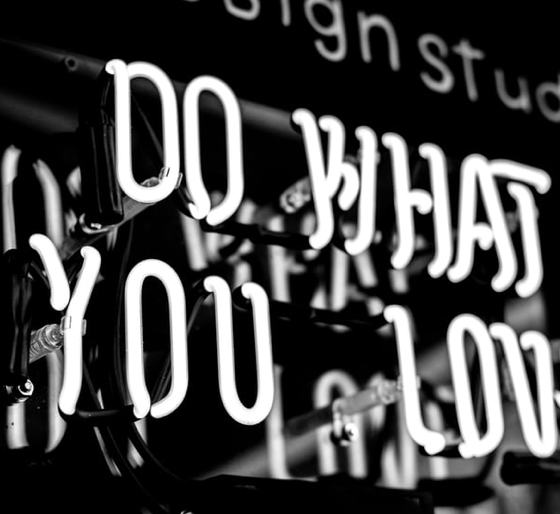Picture your ideal Monday morning: does it involve running for the bus in the dark, or waking up in your own sweet time and replying to emails in your sweatpants?
If the second scenario sounds more tempting to you, you’re not alone. Recent statistics indicate that women are driving the rise in the number of self-employed people in the UK, which now stands at 4.96 million. According to IPSE (the Association of Independent Professionals and the Self-Employed), 87% of the self-employed have worked remotely in the last year, and the vast majority (97%) of them do their remote working from home.
All this means that working from home is more feasible than ever, which is a good thing, surely? Well, yes — but there are also a few things to consider before your apartment becomes your workplace. Such as:
The home office
When I first started working from home I rejoiced at the idea of swapping my boring office swivel chair for my sofa, imagining myself curled up, Carrie Bradshaw-style, thinking deep thoughts and perhaps balancing a latte on my knee. It only took a few days to develop the kind of neck strain that had me dreaming of said swivel chair and a proper desk.
As your own office manager, you’re responsible for your workplace wellbeing, and this includes setting up a workspace that won’t impact your health. You don’t necessarily need to clutter your living room with ugly desk drawers — instead, think of working from home as an opportunity to shake things up and find out what works for you.
“I’m a fan of working on a low table, about the height of a coffee table,” explains Avni Trivedi, an Osteopath, Doula and Zero Balancer. “I sit on the floor on a yoga bolster and vary my body position from sitting cross-legged, to being astride the bolster, to a supported squat.”
You could also, Avni says, turn any table or counter-top into a standing desk by investing in a laptop stand — the most important thing is to make the most of your space. “It can be nice to work in different areas of your home,” she says. “For example, following where the natural light is best at that time of day or where is quieter or more cosy.”
Step it up
Eliminating the word ‘commute’ from your existence is a truly beautiful experience (at least, it was for me), but working from home means that life can become… sedentary.
Experts generally agree that quick walks are great for resetting focus and ensuring that your daily step count doesn’t drop below 12. Operations manager Katie Nicholls goes on step further. “Working from home is a great opportunity to get a dog!” she says. “I did, and that definitely helps because it means that I have to leave my desk three times a day to walk him.”
Avni also suggests doing walking lunges as you move around the house, or taking regular dance breaks to raise both your energy and mood. “Allow your body to let go and shake and dance out anything that needs to be expressed,” she advises. Basically, keep moving.
Loud silences
An office of one can be a lonely experience at times. “The worst thing about it for me is the sense of not being part of a work team; I miss out on office banter, which plays an important part in office culture and a sense of belonging,” says online tutor Louisa Gibbs.
“Sometimes you feel like you’re under house arrest,” says Sarah Stone, a military spouse and director at the coworking network Military Coworking Hubs. “Work is about so much more than earning money – it’s about human contact and intellectual stimulation and you don’t get much of that in our lifestyle.”
Using co-working spaces or cafes when viable can ease feelings of isolation, but nothing beats a good old chat. “Allow yourself to talk to someone at lunchtime or break time,” says Caroline Purvey, founder of the self-help well-being programme TRE UK. “If you have business colleagues, partners or clients, then keep in touch, maybe even set up a zoom call with them so it’s face to face.”
Katie agrees. “It can feel isolating when decisions are made without you, particularly in a fast-paced environment,” she says. “If I start to feel like that I will talk to my boss, and I will also just schedule in chats with my colleagues.”
Switching off
That satisfying feeling of skipping out of the office at 6pm without so much as a backwards glance does not exist when you work at home — so to prevent your professional life seeping into your personal life, you need to set boundaries.
“At the end of the working day, I close down my laptop and tidy everything away,” explains business consultant Abigail Irwin. “Because I don’t have to commute anywhere, I have a longer evening to spend with my family. I really value that and try to make the most of it by enjoying the evening trying out a new recipe or going to a yoga class.”
“Once my last lesson is over and I’ve completed my reports, it’s literally a case of shutting down my computer, having a shower, doing my make-up and leaving the house, to do something, anything, so that I still have that contact with the outside (real) world,” explains Louisa.
Setting up a routine to mark the end of the working day is key to detaching mentally from your job.
Keeping your pants on
Finally (and most importantly), can you throw out your pencil skirts and work in your pants? Sadly, the general consensus is that while casual is fine, getting dressed and taking yourself seriously is non-negotiable.
“You need to get up and dressed, do your hair and put makeup on like you would for work,” says Sarah.
“Do not sit at your desk without a bra when you work from home!” is Katie’s tongue-in-cheek rule. “I don’t always put on makeup, I don’t always do my hair, but I do get dressed.”
“I get up and get ready for work as though I’m going to the office, although I tend to wear something more comfortable,” agrees Abigail. “If I get up and go straight to my desk in my dressing gown, I don’t feel psychologically ready for work and end up getting less done. It’s also pretty embarrassing when the Amazon delivery guy rings your doorbell at 11.30am!”









